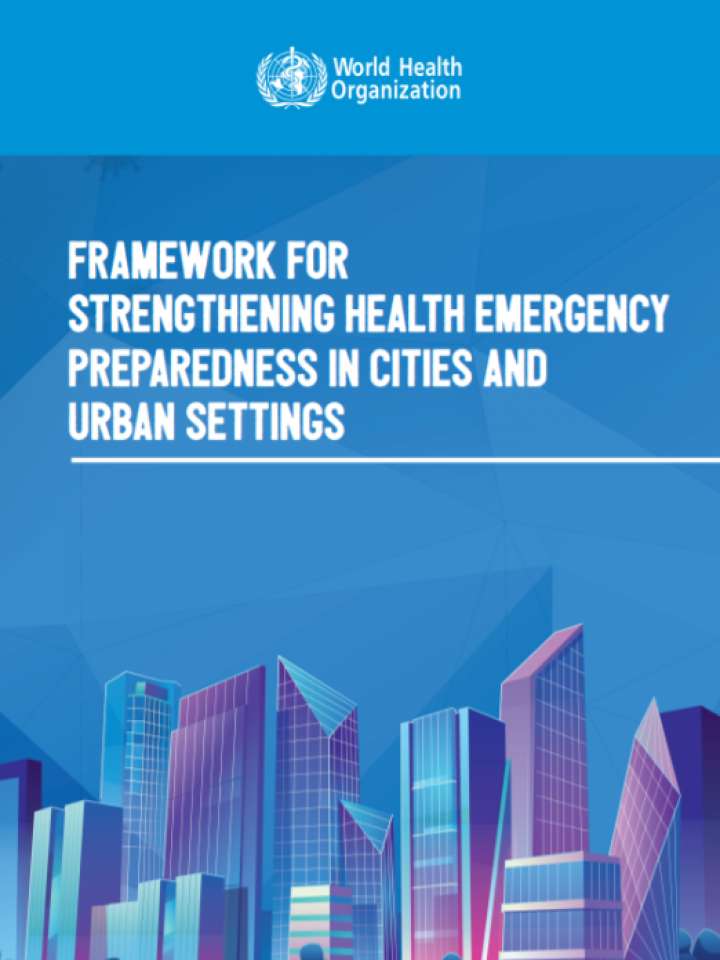Framework for strengthening health emergency preparedness in cities and urban settings
This framework intends to facilitate an increased focus on cities in health emergency preparedness. Urban areas, especially cities, have unique vulnerabilities that need to be addressed and accounted for in health emergency preparedness. An unprepared urban setting is more vulnerable to the catastrophic effects of health emergencies, and can exacerbate spread of diseases, whilst they are also very often the frontline for response efforts. Different tools and resources that contribute to strengthening heath emergency preparedness in urban settings – both existing and to be developed in the future – can be linked to the framework, supporting its implementation and contributing to a coordinated approach among the multiple stakeholders working for strengthened urban preparedness.
The framework is targeted towards policymakers in all sectors engaged in health emergency preparedness in cities and urban settings at both national and subnational levels, as well as relevant stakeholders within the international community. It has been developed as an outcome of the Technical Working Group on Advancing Health Emergency Preparedness in Cities and Urban Settings during COVID-19 and Beyond. This report details eight key areas for health emergency preparedness in cities and urban settings: Governance and financing for health emergency preparedness; Multisectoral coordination for preparedness; High population density and movement; Community engagement and risk and crisis communication; Groups at risk of vulnerability; Data, evidence and information; Commerce, industry and business; and organisation and delivery of health and other essential services.
Explore further
